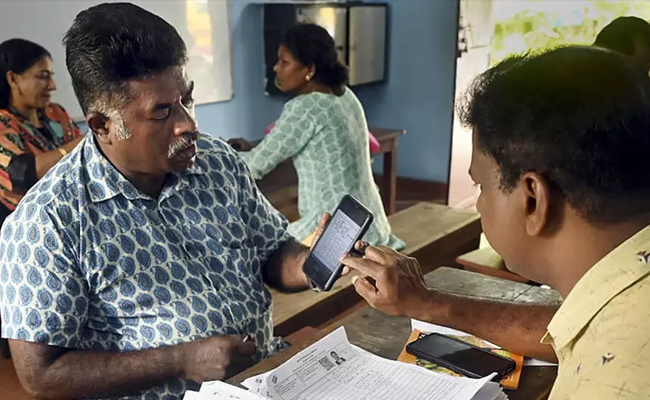Davos (PTI): Democratising filmmaking with use of artificial intelligence can help build a better future for everyone, actor and climate activist Bhumi Pednekar said here.
One of the five young global leaders who were asked one transformative idea each for a better world in 2025, Pednekar said AI has the potential to democratize filmmaking, expand access to educational films, and improve the industry for marginalized groups.
Along with several others named as 'Young Global Leaders' by the World Economic Forum for helping improve the state of the world, Pednekar is here to participate in the WEF Annual Meeting that will continue till January 24.
Giving an example of her 2017 film Toilet Ek Prem Katha (Toilet, A Love Story), which addressed the issue of open defecation (ODF), she said the film used a comedic and romantic tone to comment on various themes, from how lack of sanitation creates gender disparity and puts women at risk, to the health hazards of a lack of indoor plumbing.
"The film became a catalyst for change in India and was used as part of the government’s campaign to eradicate ODF," she wrote on the WEF blog.
The film was used across rural India, where the problem primarily existed, as an easy-to-understand educational tool. The proportion of the population defecating in the open declined significantly from 2016 to 2022, following government efforts and the film's release, she said in her response.
She pitched for advances in technology and visual effects to help such stories become more impactful.
"Imagine showing the same film, but modified by AI for global audiences, ensuring the message resonates across languages and regions," she said.
"As an actor and an advocate for equality, I’m most excited about how AI is going to democratize storytelling. I have chosen roles that challenge prevalent beauty standards and centre women and marginalized groups like the LGBTQ+ community. But there are still too few films made with the female gaze or telling queer stories," she said.
Pednekar lamented that studios avoid investing in such films due to high costs and so-called market risks, but AI can change that with lower costs and shorter filmmaking process.
AI can make female-centric films a sustainable business model and also help make the industry safer for women and marginalized groups by automating unbiased casting processes and identifying patterns of misconduct.
"And tools could even assist in determining an individual's fair and impartial compensation," she said.
Among other five young global leaders who were asked the same question, Canadian entrepreneur and founder of social enterprise Localised, Ronit Avni called for investing in African talent to build a better future.
She said employers often prefer to hire engineering and business talent from long-established tech hubs such as India, Poland, Israel, and the United States, but African job seekers remain under-utilized despite the presence of a growing, highly skilled talent pool.
"Much as India has risen as a formidable engineering hub, Africa has the potential to lead the way in carbon and ESG talent," she wrote in the WEF blog.
ESG stands for Environmental, Social and Governance.
Achieving this will require strategic investment to build candidates' carbon intelligence now, while raising employers' awareness of this talent pool, so that the continent can seize on this transformative moment, Avni said.
Let the Truth be known. If you read VB and like VB, please be a VB Supporter and Help us deliver the Truth to one and all.
Bengaluru (PTI): A 22-year-old man has been arrested for allegedly killing his uncle following a dispute over vacating a house and attempting to pass off the death as accidental, police said on Wednesday.
The accused has been identified as Masroor Ahmed.
The victim, Inayath Pasha, was living alone on the ground floor of his sister’s house in Austin Town on a lease basis. Police said he had a disability in his left leg due to polio since birth, and earned his livelihood as a two-wheeler mechanic.
According to the complaint, on the evening of March 1, Pasha’s son visited him at home and found him lying unresponsive.
On checking, he discovered that his father had died. A case of unnatural death was initially registered at the Viveknagar police station.
During further investigation, police questioned Pasha’s sister, her son, and other relatives.
A relative raised suspicion about the circumstances of the death, following which a murder case was registered, a senior police officer said.
During interrogation, it emerged that an argument had taken place on March 1 between Pasha and his nephew, Ahmed, over vacating the house.
Police said that during the altercation, Ahmed allegedly assaulted Pasha, causing him to lose consciousness and collapse.
The accused then placed him on the bed and left the scene, police added.





